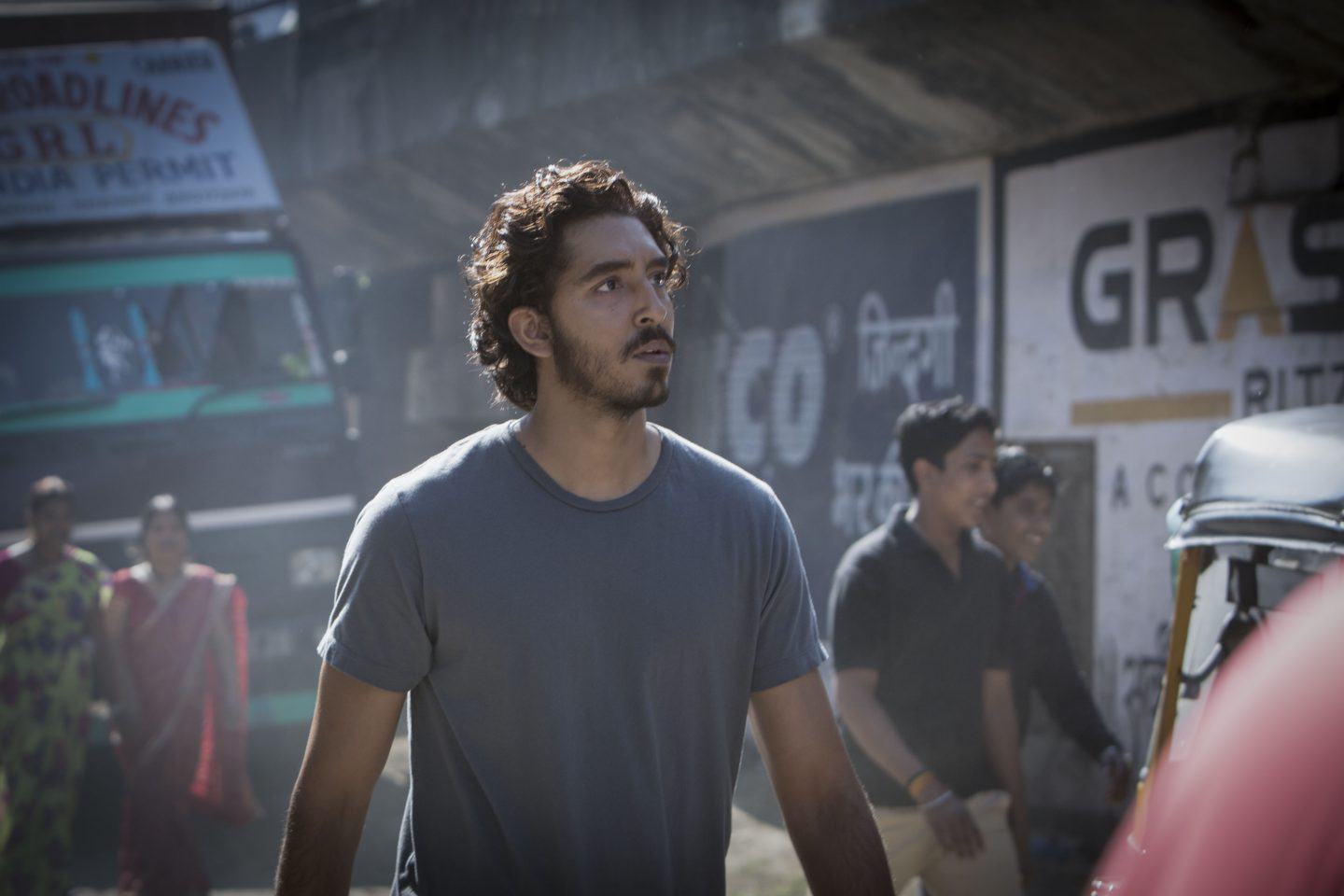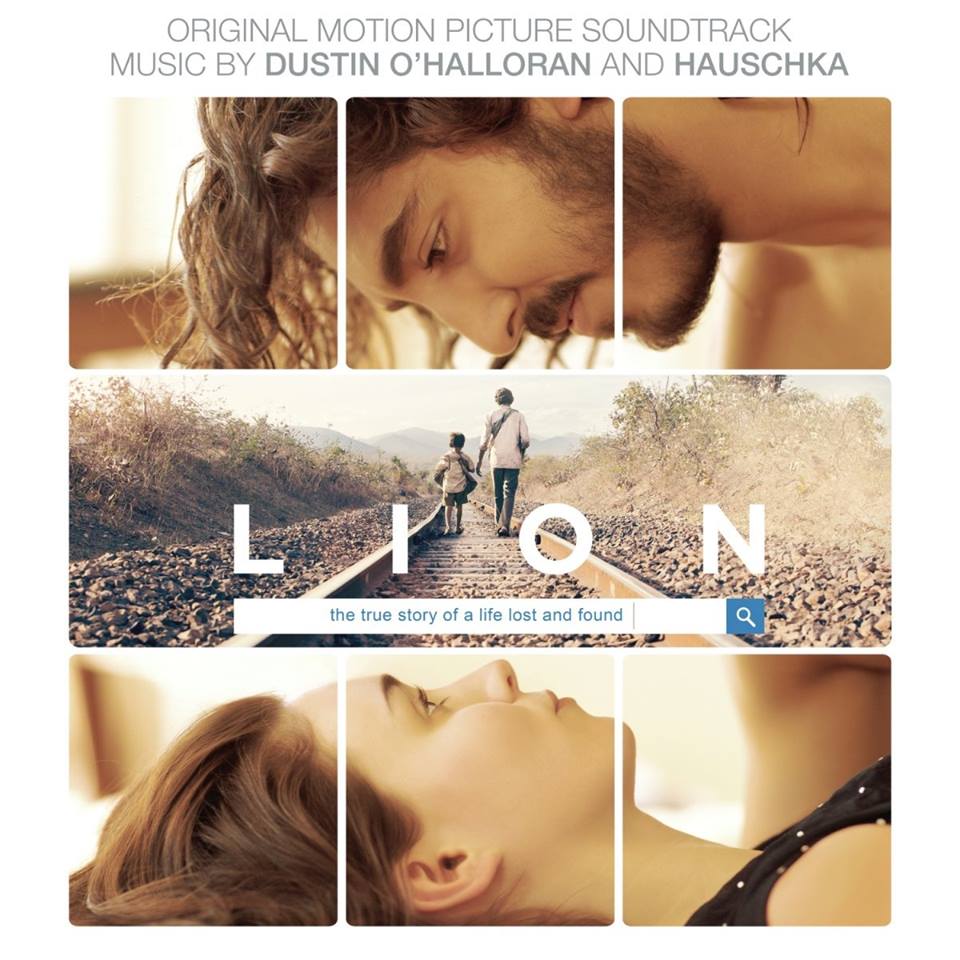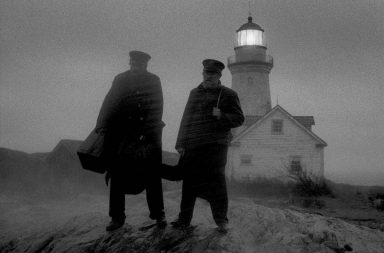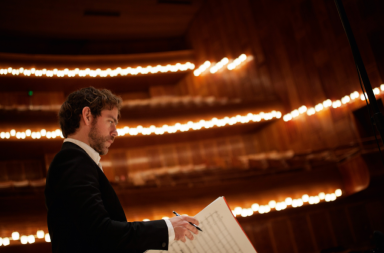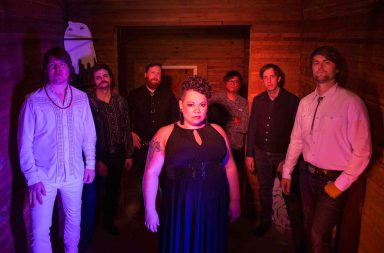A mind-blowing scenario, breath-taking cinematography and superb acting; If Lion doesn’t move you then nothing will. Based on the miraculous true story of Saroo Brierley (played by Dev Patel), who as a child was accidentally separated from his family in India, adopted by an Australian couple and decades later consumed by a need to recover his lost home, Lion contemplates what it means to belong, to be lost and to be loved.
Such an unbelievable tale requires a stunning score and what’s more powerful than one gifted pianist-composer but two of them? Director Garth Davis had a stroke of genius when he combined the brainpower of master of all things intricate and intimate Dustin O’Halloran and king of the prepared piano Hauschka (Volker Bertelmann’s solo moniker). Poignant, compelling yet artistically restrained, this Golden Globe nominated score magnifies the film’s emotional punch by delving into Saroo’s headspace and articulating his emotion so perfectly that it feels as though we are listening to his thoughts. Lion will stay with you long after it’s over but not before it warms your heart, brings a tear to your eye and graces your ears with the symphonic score of Dustin O’Halloran and Hauschka, a testament to their talent, innovation and friendship.
The three of us discussed the collaborative process, the search for authenticity the art of restraint.
Score It: You guys already knew each other when Garth Davis approached you about the score. What was it about you two as a combination that he thought would be so perfect?
Dustin O’Halloran: It’s unusual for a director to ask for two composers. He had a serendipitous moment of thinking that this would work and he was right. The film is sort of two halves. He thought maybe each of us would be good for the two halves. The texture and colour of Volker’s prepared piano fits really well with India. He originally thought I would be better for the second half and the internal emotional journey. In the end we mixed both of it together. We worked on everything in the same way, sharing themes and sounds.
Hauschka: Dustin and I met in Italy where he visited my concert. I had this feeling straight away that there was no ego between us. When Garth Davis approached me, I already knew that it would be possible with Dustin, with someone that you don’t have to fight with about who is in the front row. I think that made it so much easier.
How hands-on was Garth Davis with you both with the scoring?
DO’H: He’s one of the rare directors that listens to music in the same way that a musician does, that’s why it was so nice to work with him. He understands what makes a great piece of music great. He was never over directing us and gave us a lot of creative freedom but he also had good insight and was really sensitive to how restrained he wanted the score to be. Garth didn’t tell us what kind of music to write but how to find the emotional balance.
When other composers would have gone for a full orchestra for such an epic story, your score has this emotional sensitivity. Is there a key to how you imbued the music with these qualities, how you made it so personal?
H: The movie was already so well done, the first time we watched it we nearly cried because it was so touching. The only thing we didn’t want to do was detract from the acting with a huge orchestra and sentimental elements. We wanted to put a very soft restrained colour on top that supported the emotion already there
DO’H: Garth pushed everyone to play with honesty, to give a part of ourselves because it’s a true story and he knew it could only work if it felt authentic and if everyone connected with the story from a place of truth. A lot of the score is just single takes that we did to picture, the challenge was getting the right performance, the right take which took time. Getting these subtle emotions is sometimes just about getting the right take, the right feel.
Dustin O’Halloran and Hauschka
What is at the base a beautiful piano piece has some wonderfully interesting touches and sounds, can you talk a little about the various instrumentation and orchestration you used?
H: I used the prepared piano. It has a lot of important parts in the beginning but at the end it’s more like an instrument that creates textures and layers that are on top of the cues. You can hear some structure or some rattling and you don’t know if it’s from the movie or it’s the prepared piano.
DO’H: Doing a big orchestral score would have overplayed everything. The piano is the heart and voice of the score It’s really about all of the sounds of the piano, the prepared piano, felted uprights, some grand piano, a smaller grand in the studio. It was about finding the right fragility or depth.
The themes are reoccurring, especially the main motif, how did you come up with them and what was the intention behind this cyclical feeling?
DO’H: As we got into the film, Garth realised through the process that a theme running throughout the story could help bring us back to Saroo’s journey. When we started working on the main theme there was this idea that it should be a cyclical propelling theme. The way the theme’s chord structure works is that it never really resolves. You can keep playing it forever. It isn’t a story with an end, the ending is sort of a beginning. It’s a story of this boy’s incredible energy that propels him through his life and saves his life when he’s a boy. In the second half of the film, he never stops searching. It’s his spirit as a person.
Did it pose much of a challenge trying to maintain this musical and thematic consistency across all the different countries, cultures, languages, landscapes?
DO’H: There’s a couple of themes. There’s the main theme which is the Lion theme that opens the film. Then there is a spiritual theme that connects the spiritual timeline. It is this sense that he is still feeling his family, always feeling a connection that goes beyond space and linear time. It’s always about his journey and never about him being somebody from India. We weren’t focusing on these sort of class and racial differences, it was more just a story of love, connection and feeling lost. We were following these universal feelings with the music.
H: There is a kind of stability created by the music, even though there are a lot of changes. Musically, it seems hard to capture all of the turbulences of India and Australia, but I think the music, in a way, acts as a very stable element that keeps everything in balance. Yesterday, I was listening for the first time in a while to the music without the film and I realised that it has quite a stableness to it. It feels like a natural journey.
So the topic of temp music is passionately debated at the moment and I’ve read that the temp track for Lion was intimidatingly good? Did you find this a help or hindrance?
DO’H: We got misquoted there, somebody ran with that. The score was us, Garth put our music in and it felt really clear already that we were right for the film but we always knew it was going to be much better with an original score. Let’s correct that.
H: We would never say that about our own songs!
What was the collaborative process like between you two, how did you share and balance it all out?
H: In the beginning, we started individually, in our own space. We got some ideas and found out how we wanted to approach it. We opened up a Drop Box and saved and shared things. In the evening, when I’d finished working, Dustin was waking up in LA so he’d received all the stuff that I had worked on. We were working 24 hours’ circle and there was always something new coming in. After that process, we met in LA in Dustin’s studio and worked for 4 weeks together. We tried different ideas together and sometimes when someone was tired, the other one would work by himself. It was a very natural process.
What has been the personal highlight for you both scoring such an incredible story?
DO’H: Just to be given the opportunity to work on such a great film! I’ve done a lot of films and it’s rare that you get the whole package. The cinematography, the acting and the story are so strong in this film. It was such an honour to work with such an incredibly talented and inspiring group of people. They let us trust our own instincts and never doubted them. Everyone got a chance to bring their artistry to the film and that’s what makes a great film and makes a great director.
H: We felt right away was that it was something special. We always felt that we got so much support in our path when we decided something the team said « well it could be a little bit more that way but you are on the right path so please carry on! »
What have you got in the pipeline?
H: I am working on a movie called Ashes in the Snow. It’s a Lithuanian-American war drama and then I’m working on a small German dark indie movie which I really love. It’s called 1000 Ways to Describe the Rain. Then I’m releasing a new record in March.
DO’H: I’m working on a film that’s the stray of the Chappaquiddick incident, the 1969 Ted Kennedy scandal with my partner in A Wing Victory for the Sullen, Adam Wiltzie. I’m soon to work on the new season of Transparent and Volker and I have just realised a kind of companion EP. It’s separate on iTunes but we did it as a collaboration and it’s going to come out on one vinyl together.
H: Finishing our year with another collaboration!*
Would you guys collaborate again?
DO’H & H — Yes absolutely!
* The interview was done in December 2016
Interview prepared, conducted and transcribed by Emily Perry. Edited by Marine Wong Kwok Chuen.
